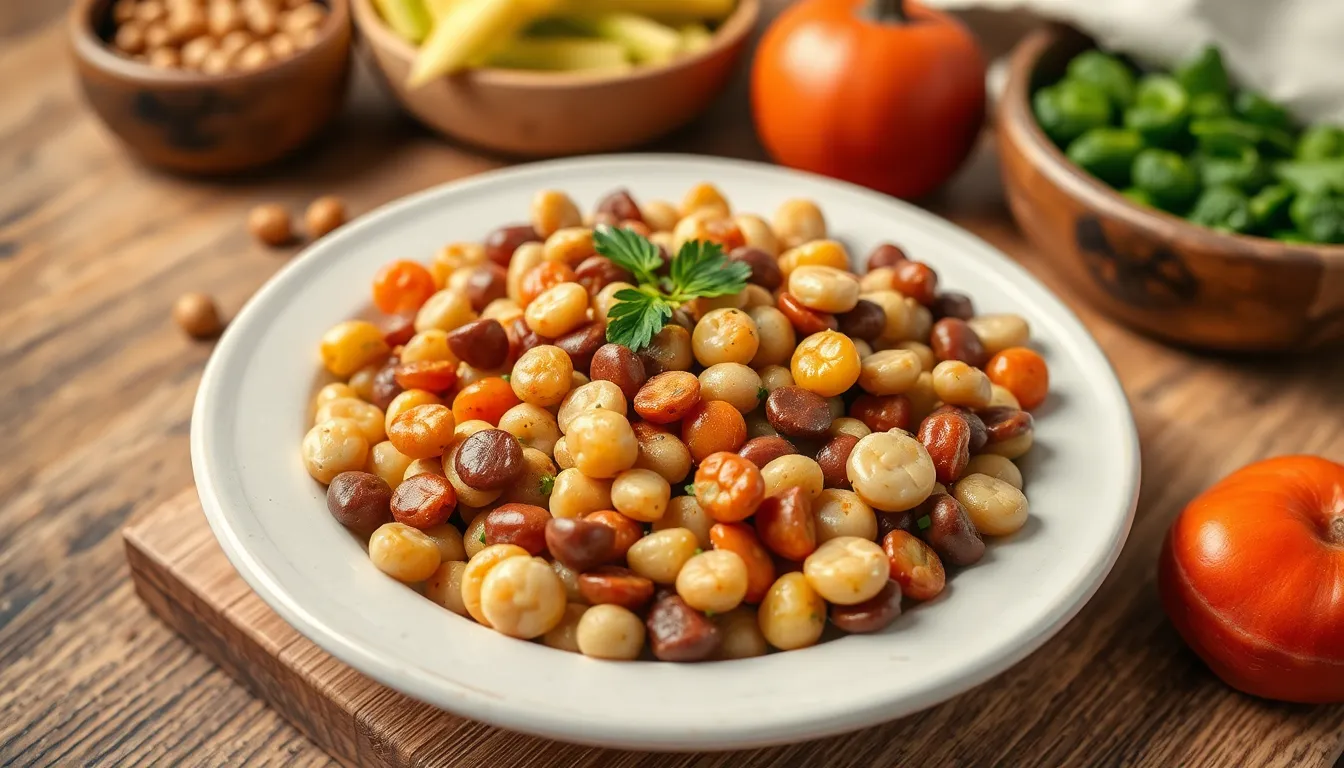The Benefits of Eating Whole Grains Every Day
Introduction
Whole grains have gained significant attention in recent years, and for good reason. These nutrient-dense foods, which include the entire grain seed, provide a wealth of health benefits that contribute to overall well-being. Incorporating whole grains into your daily diet can lead to improved nutrition and a lower risk of various chronic diseases.
In this article, we will explore the definition of whole grains, their numerous health benefits, and practical tips for incorporating them into your meals. By the end, you’ll understand why making whole grains a staple in your diet is essential for a healthier lifestyle.
Section 1: What Are Whole Grains?
Whole grains are grains that contain all three parts of the grain kernel: the bran, germ, and endosperm. This composition ensures that they retain their natural nutrients and fiber, unlike refined grains, which have been stripped of these essential components during processing.
Some common examples of whole grains include:
- Brown rice
- Quinoa
- Oats
- Whole wheat
- Barley
- Farro
- Millet
Comparison of Whole Grains vs. Refined Grains
| Type of Grain | Nutritional Value (per 100g) | Fiber Content | Common Uses |
|---|---|---|---|
| Brown Rice | 111 calories, 2.6g protein | 1.8g | Stir-fries, salads |
| Quinoa | 120 calories, 4.1g protein | 2.8g | Bowls, soups |
| Oats | 68 calories, 2.5g protein | 1.7g | Breakfast, baking |
| Whole Wheat | 340 calories, 13g protein | 12.2g | Bread, pasta |
Section 2: Health Benefits of Whole Grains
2.1. Nutritional Benefits
Whole grains are packed with essential nutrients, including a variety of vitamins, minerals, and antioxidants. They are rich in:
- B vitamins (such as B1, B3, and B5)
- Iron
- Magnesium
- Antioxidants
These nutrients play a crucial role in energy production, metabolism, and overall bodily functions, making them an invaluable part of a balanced diet.
2.2. Digestive Health
The high fiber content of whole grains is one of their standout benefits. Fiber is essential for digestive health as it:
- Promotes regular bowel movements
- Prevents constipation
- Supports the growth of beneficial gut bacteria
Including whole grains in your diet can help prevent digestive disorders such as diverticulitis and irritable bowel syndrome (IBS).
2.3. Heart Health
Whole grains have been shown to positively impact heart health. They help to:
- Lower cholesterol levels
- Reduce blood pressure
- Improve overall cardiovascular health
The antioxidants and fiber in whole grains also play a role in reducing inflammation and improving blood vessel function, further contributing to heart health.
2.4. Weight Management
Whole grains can aid in weight management due to their high fiber content, which promotes satiety and reduces hunger pangs. Benefits include:
- Feeling full longer
- Reducing the chances of overeating
- Stabilizing blood sugar levels
Incorporating whole grains into meals can help maintain a healthy weight and support weight loss efforts.
2.5. Reduced Risk of Chronic Diseases
A diet rich in whole grains has been linked to a lower risk of chronic diseases such as:
- Type 2 diabetes
- Certain types of cancer (including colorectal cancer)
Research suggests that the fiber, antioxidants, and phytochemicals in whole grains play a significant role in disease prevention, making them a smart choice for long-term health.
Section 3: How to Incorporate Whole Grains into Your Daily Diet
Adding whole grains to your meals doesn’t have to be complicated. Here are some practical tips to seamlessly integrate them into your daily diet:
- Swap refined grains for whole grains: Choose whole grain bread instead of white bread, brown rice instead of white rice, and whole wheat pasta instead of regular pasta.
- Start your day with whole grains: Try whole grain cereals, oatmeal, or whole grain pancakes for breakfast.
- Experiment with new grains: Incorporate lesser-known grains like barley, farro, or bulgur into salads, soups, or side dishes.
- Make snacks whole grain: Opt for popcorn, whole grain crackers, or homemade granola bars made with oats.
Recipe Ideas Featuring Whole Grains
Here are a couple of delicious recipes that highlight the versatility of whole grains:
Overnight Oats
Ingredients:
- 1 cup rolled oats
- 2 cups almond milk (or any milk of choice)
- 1 tablespoon chia seeds
- Your choice of fruits (bananas, berries, etc.)
- Honey or maple syrup to taste
Instructions:
- In a jar or bowl, combine the oats, almond milk, chia seeds, and sweetener.
- Mix well and top with your favorite fruits.
- Cover and refrigerate overnight.
- In the morning, stir and enjoy your nutritious breakfast!
Quinoa Salad
Ingredients:
- 1 cup cooked quinoa
- 1 cup cherry tomatoes, halved
- 1 cucumber, diced
- 1 bell pepper, diced
- 1/4 cup red onion, finely chopped
- 2 tablespoons olive oil
- Juice of 1 lemon
- Salt and pepper to taste
Instructions:
- In a large bowl, combine the cooked quinoa and diced vegetables.
- In a separate bowl, whisk together the olive oil, lemon juice, salt, and pepper.
- Pour the dressing over the quinoa and vegetables, and toss to combine.
- Serve chilled or at room temperature.
Section 4: Final Thoughts
Incorporating whole grains into your daily diet is a simple yet powerful way to enhance your health. With their rich nutritional profile and numerous health benefits, whole grains can aid in digestion, support heart health, and reduce the risk of chronic diseases. By making a conscious effort to swap refined grains for whole grains, you can enjoy delicious meals while reaping the benefits of these wholesome foods.
Start exploring the world of whole grains today and discover the positive impact they can have on your health and well-being. Happy cooking!




